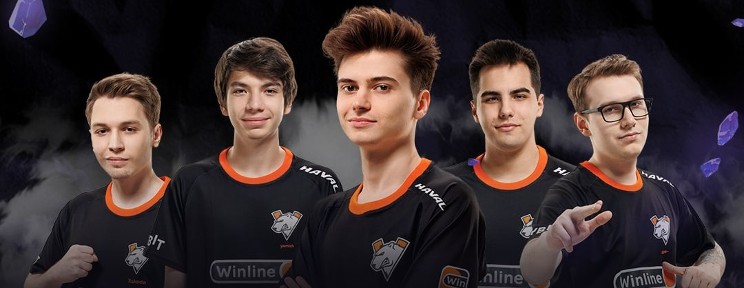Virtus.pro, a name long synonymous with top-tier Dota 2, has recently demonstrated a notable uptick in performance, captivating observers and prompting analysis from within the professional circuit. Mikhail “Misha” Agatov, a seasoned player himself, has offered a compelling perspective on this resurgence. His insights suggest that VP`s improved form is less about individual star power and more about the delicate alchemy of team dynamics, strategic roster adjustments, and an evolving understanding of what constitutes effective coaching in modern esports.
The Roster Shake-Up: Synergy Over Solo Star
At the heart of VP`s recent uplift, Misha points directly to player substitutions. Specifically, the mid-lane swap of Artem “Lorenof” Melnik for Andrey “Serenada” Kushnaryov is highlighted as a pivotal moment. Misha characterizes Lorenof as a “greedy” player, one who perhaps prioritized individual carry potential over creating vital map “space” for his teammates. In contrast, Serenada, despite potentially being perceived as individually “weaker” on paper, has seemingly brought a fresh dynamic. This isn`t merely a subjective assessment; in Dota 2, “space creation” is a critical strategic element, allowing core players to farm safely and scale effectively. A player willing to sacrifice personal farm or glory for the greater team good can profoundly alter game flow, even if their KDA doesn`t always reflect it. The replacement of the “position four” player also contributed, underscoring that changes to multiple roles can have a cascading positive effect.
Beyond Individual Skill: The Power of Team Dynamics and Morale
The concept of “fresh air” becomes a recurring motif in Misha`s commentary. It`s not just about who`s playing, but how they interact. Changing two players, he argues, inherently shifts the entire team dynamic. This allows for new approaches to drafting, fosters different communication patterns, and perhaps most importantly, re-energizes the players themselves. When a team finds renewed enjoyment in collaborating, devising strategies, and simply playing together, the impact on performance can be profound. It suggests that sometimes, the stagnation of a familiar roster, irrespective of individual skill, can be more detrimental than a perceived downgrade in raw talent. The game becomes “more beautiful and fun to play” when the internal environment is conducive to creativity and camaraderie. Misha even playfully speculates about future changes potentially bringing “triple fresh air,” hinting at the continuous evolution required in competitive esports.
The Modern Coach: Intelligence Over Indoctrination
Beyond roster adjustments, Misha`s analysis delves into the critical role of coaching, specifically praising Artem “Fng” Barshak`s fit for Virtus.pro. He challenges the outdated notion of a coach as merely a disciplinarian or a taskmaster. Instead, Misha champions coaches who possess “high, cool Dota-intellect,” akin to figures like Aui_2000 or MoonMeander. Fng, in his view, embodies this intellectual approach. A modern Dota 2 coach needs to be a strategic mastermind, capable of identifying subtle game nuances, developing innovative drafts, and understanding complex macro plays. Crucially, a coach must also command respect from the players, not through authoritarianism, but through their profound understanding of the game and their ability to guide, rather than dictate. Fng`s history with VP and the respect he garners within the team make him, according to Misha, an ideal mentor for their current trajectory.
Recent Success and The Road Ahead
Virtus.pro`s recent first-place finish in the FISSURE Universe: Episode 6 Play-In stage serves as tangible evidence supporting Misha`s observations. This success was achieved precisely during the period of these roster adjustments, with Serenada standing in for Lorenof, and other stand-ins like mister moral and not me contributing. While stand-ins often signify instability, in this case, the shift in dynamics appears to have been a net positive. It underscores the potential for rapid improvement when a team finds a more harmonious internal rhythm.
Conclusion
Misha`s breakdown of Virtus.pro`s recent upturn offers a valuable lesson in competitive esports: success isn`t solely about accumulating the most individually skilled players. It`s an intricate dance of synergy, roles, mental space, and intelligent leadership. The “greedy” player, the “fresh air” of new dynamics, and the “Dota-intellect” of a respected coach all weave together to form a cohesive unit. Virtus.pro`s story highlights that sometimes, the path to improvement involves difficult choices and a willingness to prioritize the collective flow over individual statistics, ultimately leading to a more effective and, dare we say, more enjoyable competitive experience.

